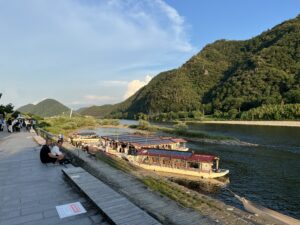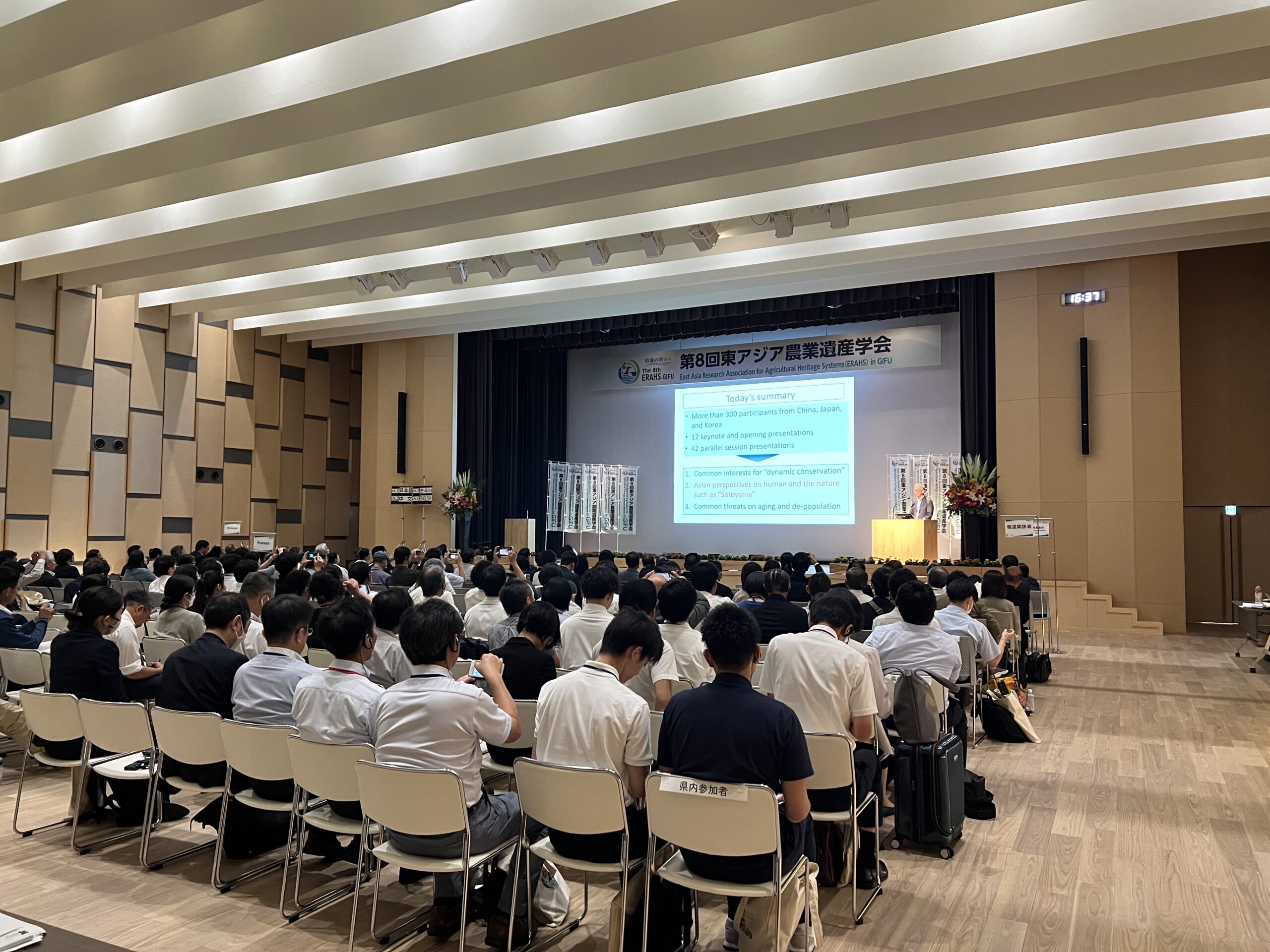On August 8 and 9, 2024, the “8th Conference of East Asia Research Association for Agricultural Heritage Systems” (ERAHS) was held in Gifu Prefecture, with approximately 250 participants from Japan, China, and South Korea. The Nagara River basin in Gifu Prefecture was registered as a Globally Important Agricultural Heritage Systems (GIAHS) as “Ayu of the Nagara River System” in 2015, and traditional fishing and regional culture continue to thrive there. During the conference, discussions were held on the theme “Connecting Agricultural Heritage to the Next Generation – Traditional Agriculture, Forestry, Fishing, and Culture,” focusing on the preservation and development of agricultural heritage.
ERAHS was established in 2013, serving as a platform for agricultural heritage stakeholders from Japan, China, and South Korea to gather annually, share knowledge, and deepen exchanges. Meetings have alternated between China, Japan, and South Korea, making this the 8th session.
At the meeting, representatives from FAO (United Nations Food and Agriculture Organization) and various governments gave keynote speeches regarding the significance and challenges of agricultural heritage. Yoshihide Endo, head of the GIAHS Secretariat at FAO, spoke about future challenges in the protection of agricultural heritage, while José María García Alvarez-Coque presented examples from Europe. Recent efforts related to agricultural heritage in China and South Korea were shared, reaffirming the importance of preserving and utilizing agricultural heritage.
Additionally, nine subcommittees were held during the conference, discussing a wide range of themes such as the next-generation inheritance of agricultural heritage, regional revitalization, protection of traditional culture, and eco-tourism. Participants shared case studies from their countries, highlighting specific efforts aimed at regional revitalization, such as brand certification in Osaki City, Miyagi Prefecture, crowdfunding on Cheongsong Island in South Korea, and legal protection for a jasmine tea brand in Fuzhou, China.
Researcher Koyama from the UNU-IAS OUIK, in collaboration with Ishikawa Prefecture, presented on “Restoration and Recovery Efforts of ‘Noto’s Satoyama and Satoumi’ GIAHS Site”. The presentation covered the damage to agriculture, forestry, fisheries, and traditional industries caused by the Noto Peninsula earthquake, as well as support systems and creative recovery efforts by the prefecture and the United Nations University.

After the conference, participants had the opportunity to experience regional traditional culture and natural environments by visiting the cormorant fishing on the Nagara River and Gujo City. Activities included demonstrations of cormorant fishing, boat building tours, traditional crafts in Gujo City, and experiences at the Nagaragawa Ayu Park.




This meeting served as an important platform to reaffirm how to pass on the value of agricultural heritage to the next generation and utilize it for regional development.





